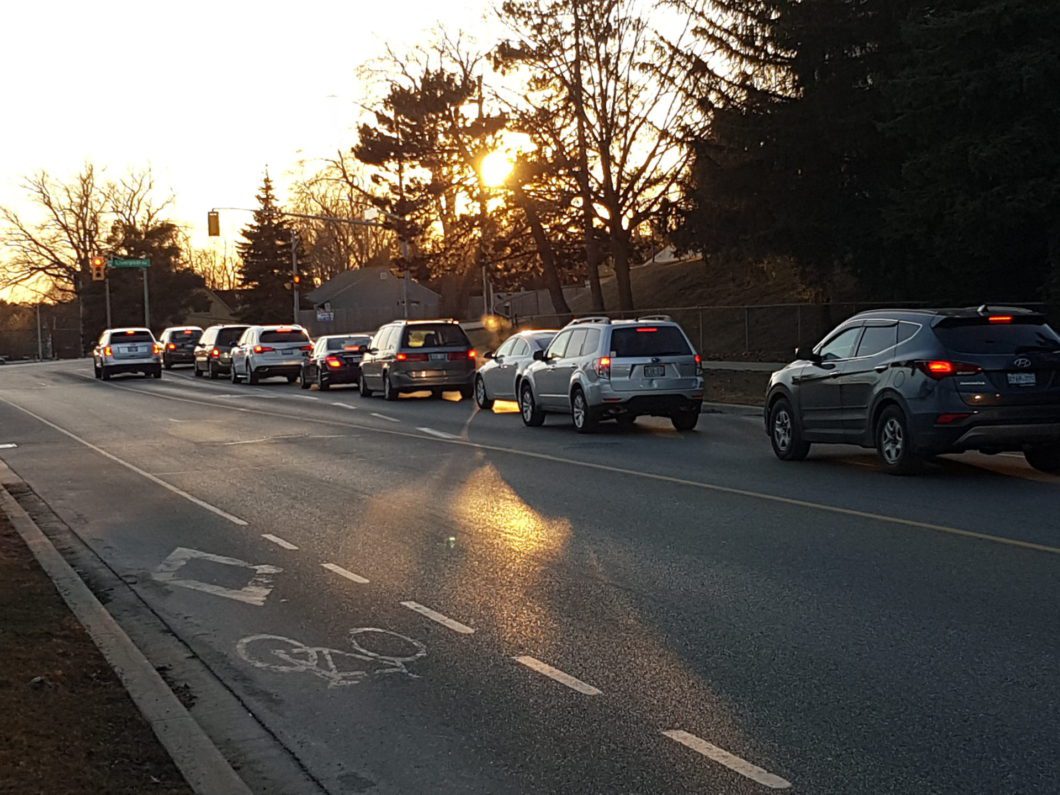On Friday, March 15, over one million students in over 100 countries walked out of class as part of the Fridays For Future movement. This movement seeks to call attention to the threat of man-made climate change.
The protests come after the Intergovernmental Panel on Climate Change released a report in 2018 warning that humanity has as little as 11 years to keep global warming at 1.5 C above the pre-industrial average. If this temperature is passed, the IPCC projects it could cause a host of problems for millions around the world.
In light of this news, here are some things people can do to reduce their greenhouse gas emissions and individually fight climate change.
1. Choose cleaner transportation methods
The average passenger car emits around 4.6 metric tons of carbon dioxide per year, according to the United States Environmental Protection Agency. By being mindful of how they travel, people can have a big impact on cutting their greenhouse gas emissions.
Kimberly Strong is a professor of physics at the University of Toronto and an expert on tropospheric (the lowest region of the atmosphere) pollution and climate change. She suggests living “car-free.”
“That’s easy for some people and not easy for others,” she says, admitting that it’s “not always possible to live car-free.”
Strong recommends driving a fuel-efficient vehicle and trying to reduce driving whenever possible.
If people are looking to buy a new vehicle, they should consider buying an electric or hybrid car.
Biking, or using public transportation, can also be helpful.
2. Change in-home practices
Strong recommends keeping home energy usage efficient to reduce greenhouse gas emissions.
Not setting thermostats too high during the winter and not using too much air conditioning during the summer can be helpful, she says.
When buying new appliances such as washing machines, Strong recommends choosing models that are energy-efficient.
3. Eat less beef
Greg Evans, a professor in the Department of Chemical Engineering and Applied Chemistry at the University of Toronto, recommends a person cut down on the beef to reduce his or her carbon footprint.
Evans says it’s more environmentally friendly to choose chicken or fish when planning meals.
“Beef is wonderful, but it’s better not to eat it too often; just as a treat,” he says.
Evans says going vegan is an even better option, but that’s a matter of individual choice.
Livestock supply chains result in 14.5 per cent of all human-caused greenhouse gas emissions, according to The Food and Agriculture Organization of the United Nations.
Cows are particularly problematic, as their stomachs produce large amounts of methane.
4. Think twice before having another child
An environmental research letter titled ‘The climate mitigation gap: education and government recommendations miss the most effective individual actions’ demonstrates that having fewer children can have a huge impact on limiting greenhouse gas output.
Every person on earth has a carbon footprint. Children will eventually grow up and make their own contributions to greenhouse gas emissions. By not having a child, parents can prevent the future emissions the child will be responsible for.
To put things into perspective, the letter states: “A U.S. family who chooses to have one fewer child would provide the same level of emissions reductions as 684 teenagers who choose to adopt comprehensive recycling for the rest of their lives.”
5. Take political action
Matthew Hoffmann, a political science professor at the University of Toronto, says governments have a huge part to play in the fight against climate change.
“There are significant limits to what individuals can do to fix climate change,” he says. “A lot of what individuals are constrained by are larger structural things like how our cities are planned, what kind of technologies are available and what kind of policies we have in place around transportation and energy.”
Hoffmann recommends voters educate themselves on how political candidates and parties stand on the issue of climate change.
“Voters of all political persuasions have a responsibility to hold their parties and candidates to account,” he says. “All candidates and all parties should have strong, detailed climate policies, and until all voters demand it of all parties, we’re not going to see that.”

